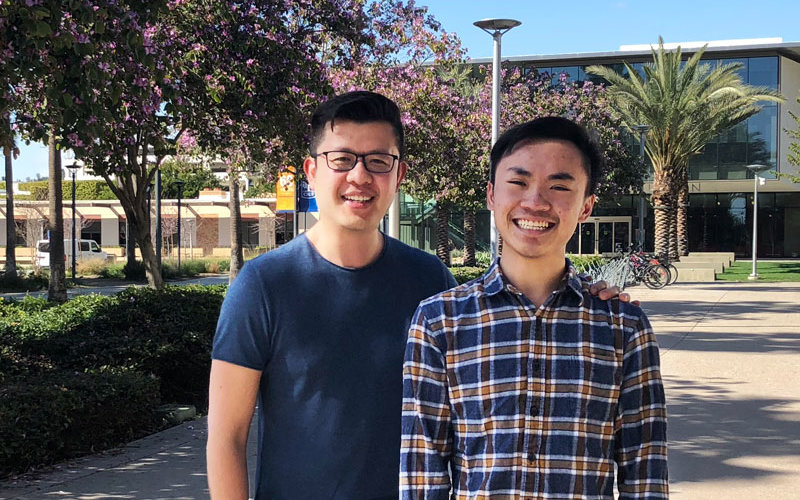
He’s no stranger to performing around the world, but Ning An has a special following in China and Taiwan. The assistant professor of music offers regular concerts and master classes in the two countries — and former pupils, even those he taught when they were quite young, continue to keep tabs on him.
“Students from Asia can see who I am and where I come from, and relate their future path with the one I have taken,” says the pianist. “They see that I have been an immigrant to the United States and worked hard to get full scholarships at major conservatories, win competitions, and perform in major orchestras and concert halls. I also can explain what it takes to get there.”
Hsin-Hao Yang is one such student. Originally from Taiwan, he received instruction from An from an early age. “The reason I’m in Cal State Fullerton is to study with Professor An,” says Yang. “I loved his teaching and playing so much that I pursued him to study here in California.”
“He arrived at CSUF last year, and within a month and a half, had learned and memorized the Liszt Piano Concerto and won the overall first prize in the Music Associate’s competition that included all instruments of the School of Music,” says An.
It was Liszt’s Piano Concerto No. 1 in E-Flat Major, in fact, that won Yang first prize at the Dallas International Piano Competition earlier this year, where he went up against students from major conservatories such as The Juilliard School and the Curtis Institute of Music.
It’s the CSUF School of Music’s approach to training students on the many facets of being a 21st-century musician that helps them succeed, says An.
“We encourage speaking out, asking questions, researching online, venturing out to perform in the community, combining all the skills from history and theory and incorporating them into their performances.”
An is tough in his instruction, he adds, because he wants his students to experience both pressure and high expectation “in an environment where it is acceptable to fail and try again and again until they find success,” An explains. “I want them to be prepared so that the outside world — the real world — is not so daunting if every lesson, every class, every note is prepared with the utmost care.”
Now a sophomore, Yang believes a key component of the School of Music is the many performing opportunities it offers. “Since the hardest part of piano playing is performing in front of audiences, all these events give students a very good opportunity to practice their performing skills, which have impacted my playing tremendously,” says Yang.
“My goal is to have us be mentioned not amongst the best of Southern California but the best,” states Yang’s professor. “I know that is not an easy goal to achieve but there is no point if we don’t aim high.”